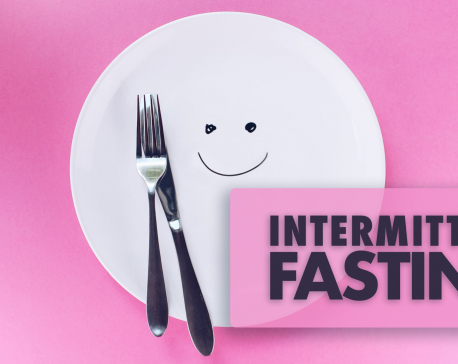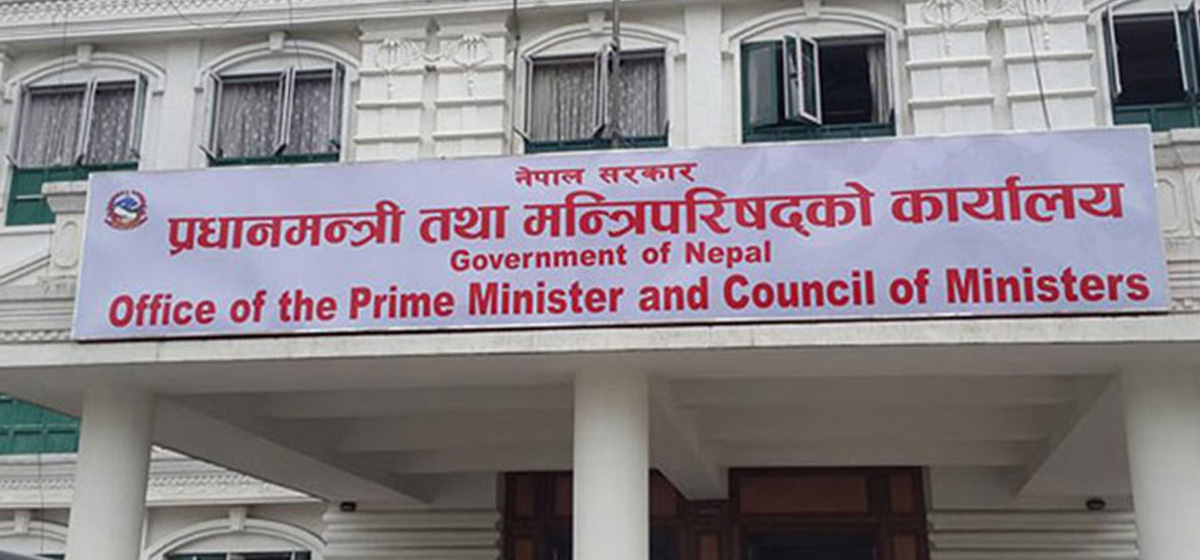
OR

Dieting is basically regulating and managing your food consumption for weight management and for other health issues. It’s not the absence of food and should not be confused with fasting.
For most of us, being fit or the need to shed a few kilos is a persistent thought. It’s something we obsess over and sometimes even go to extreme lengths to accomplish. But you know what they say: one rule never fits all. You may see your friend look so much healthier (read leaner) and ask him/her for his/her meal and exercise plan and follow that to the t. But even if you do everything they did, it’s highly unlikely that you will see the same results.
Research suggests that one’s attitude towards food, hormones, genes and lifestyle plays into what helps them with their weight management and wellbeing. Dr Jaya Pradhan, nutritionist and professor doctor at Central Department of Home Science, Tribhuvan University, talks to The Week about how people should approach dieting, the common mistakes they invariably end up making, and suggests some ways in which you can go on a diet the right way.
To begin with, what does dieting entail and what are some things people have to understand about dieting?
Dieting is basically regulating and managing your food consumption for weight management and for other health issues. It’s not the absence of food and should not be confused with fasting. Your food plan is more or less set out for you and you should design it in the way it accounts for your weight, height, BMI (Body Mass Index). Mostly, one should consume protein in greater quantities and cut down on the carbohydrates. And here I’m saying cut down, not eliminate. Dieting is something you should fit into your lifestyle, it shouldn’t be something you strictly pick up at one period and completely forget about in the other.
So how would you advise people to approach it?
Dieting is not fasting and fasting is not dieting. This is what people should be clear about first. Just because you’re on a diet does not mean you will lose or gain weight as you wish. Food is one aspect and physical activity is another. Oxidizing food and releasing energy is necessary too. You should consider aerobics or other exercising techniques. If there’s no physical exercise there will be no fat burn. Some days you must take a break from you routine as well. Think of dieting as a gradual change in your life and not a time you dread. What this will do is help you develop the perception that dieting is a healthier lifestyle choice. Eating healthy is always good, not just when you want to lose weight.
What would you say is the right way to diet?
It’s almost alarming how certain dieting techniques are becoming popular in the mainstream culture – intermittent fasting and intermittent keto being two of the most common trend these days. Matters such as your health shouldn’t ride on what is popular but should depend on what suits your body and lifestyle. Consult a nutritionist before you make adverse changes in your lifestyle. Not everyone is the same. Diet controls, diet patterns and fasting are some diet techniques that work but the best one which nutritionists often recommend is calorie control. Take a measure of how much calories you consume and burn. To burn fat you must burn more than what you consume. A negative calorie balance helps you lose weight while a positive calorie balance helps you gain weight. If you think intermittent fasting might suit you, eat at least 600kcal and no more than 800kcal per day on two successive days each week, then eat a relatively healthy diet for the next five days, but do that without counting calories.
What are some mistakes people make when they are on a diet?
Keeping your stomach empty is dangerous. Even when you’re on intermittent fasting and your stomach feels empty during the window period of not eating, you must eat something. Fruits or dried nuts work really well and make sure you keep yourself hydrated at all times. Water is crucial. Eating doesn’t lead to weight gain. The inability to burn calories in relation to its intake is what causes weight gain. Depriving yourself of food or excessively limiting your portions isn’t right. Certain toxins remain in your body if you don’t give yourself enough food. Nutrition preservation is important when dieting. You must preserve the existing nutrients. And lastly, when you’re fasting (for either religious or health purposes) drink water constantly.
Can you give us your recommendations for people who are considering dieting?
Understand your body’s requirements first. If you’re pregnant or underage, intermittent fasting can be harmful for you. The growth of the unborn child and the wellbeing of the mother will be at risk as there’s high nutritional intakes required during pregnancy. For underage individuals, food deprivation is not a smart thing. Consider your lifestyle as well. If you’re active during the early hours of the day, then skipping breakfast is not a wise move. You will need to fuel your body so have a good breakfast. Take into account your activity levels when choosing to go on a diet. If you’re a heart patient, counting calories while performing light physical activities is the right way to diet. If you decide on a diet, stick to it as changing your dietary patterns frequently will only do you more harm than good.
You May Like This

Five ways how intermittent fasting can transform your health completely
We often hear we must eat at least three times a day and that skipping breakfast is an extremely unhealthy... Read More...

Biplav Maoists halt food supplies, Humla, Mugu under food shortage
HUMLA, Jan 21: For the past 10 days, the Biplav led Maoist faction have seized daily food supplies and 300... Read More...

'17 percent of food products available in market unfit for consumption'
KATHMANDU, Dec 29: Market inspection and quality test conducted in the first four months of Fiscal Year 2017/18 has found that... Read More...


Just In
- Korean embassy and NTB commemorate 50th anniversary of Korea-Nepal Diplomatic Relations
- SC administration files contempt of court case against SidhaKura
- Second day of Nepal Investment Summit to feature diverse discussions
- Ilam-2 by-election: UML’s Nembang leads by 4,523 votes
- UML’s Bhandari secures victory in Bajhang-1 by-election
- CIB probe into fake DL distribution case: PMO pressures public prosecutor to free arrested govt employees
- Police report one death in Bhojpur jeep accident
- Nepal faces Bangladesh Red in int'l U-19 Volleyball Championship final

















Leave A Comment